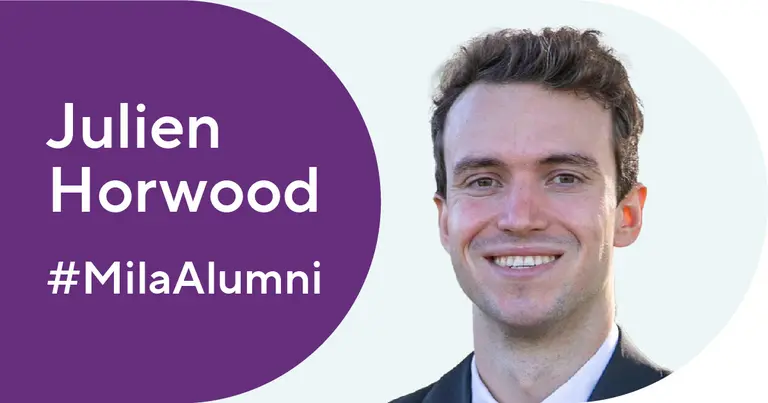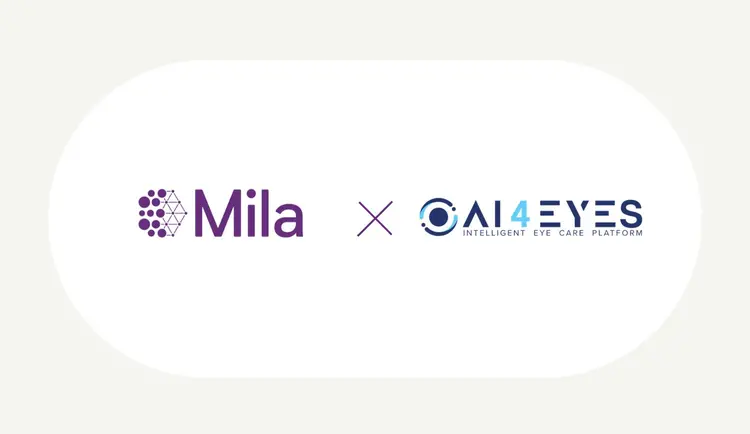
We recently had the opportunity to hear from Julien Horwood, a Mila Alumni trained in machine learning, and currently working on his PhD at the University of Cambridge.
Tell us about your academic and professional path.
My background is a pretty traditional one in the field of machine learning, though I have taken some non-traditional turns along the way. I did my undergraduate degree in mathematics and computer science at the University of Ottawa. After taking a year off to travel, I decided to continue down the machine learning path and enrolled at Mila for my Masters degree. This is where I met the people at InVivo AI, now Valence Labs (Recursion), and got my first “real” job. I spent three wonderful years there as a machine learning scientist, despite the pandemic, and developed my thinking on where I would like to contribute in terms of applying machine learning. Since 2022, I have gone back to being a student, this time working towards my PhD at the University of Cambridge Machine Learning Group.
What are you working on now?
My current research areas are causal representation learning and identifiability. I’m especially interested in how multiple tasks can help us achieve identifiability. Ultimately, the goal of identifiable models would be to enable more robustness, in a principled way, to distribution shifts. I’m also interested in applying novel approaches like identifiable representation learning to unsolved problems in machine learning for drug discovery. For example, it turns out that predicting the properties of molecules is very challenging because “interesting” molecules are very rare, and thinking of new ways of training our models might help with this.
Tell us a bit about your time at Mila.
Academically, my time at Mila was spent primarily on coursework as I was doing the course-based degree. I very much enjoyed it, not only because of the quality of the courses but also the vibrancy of the community, from the many socials to the weekly tea talks. I really think Mila is a unique academic community and I made some friendships there with people from around the world that I hope to keep forever.
What advice would you give to new Mila students?
Mila was already very big when I joined, and I imagine it has only gotten larger over the past few years. This might seem overwhelming, but it also has many advantages. My advice to new students would be to remember that Mila is a very inclusive place, and just to try to make the most of this fantastic network and meet as many people as possible. From a research perspective, there is likely always going to be other people interested in similar problems as you, so take this as an opportunity to learn from others (and share what you know).
What is the biggest challenge that you think AI faces today?
The last few years have been interesting for AI. It has now fully gone mainstream, and the biggest challenge now will be for it to deliver on the expectations that have been set by the general public. The largest models have gotten very good at hiding their flaws, but they can still fail in unexpected ways. I think solving this will require more technical innovation and an eventual return to focusing on areas like robustness, causality, etc. I also think it will be a challenge for these models to deliver these results in a sustainable, cost-effective way, both economically and environmentally.
What are you looking forward to as AI continues to develop?
I think there is great potential for using AI in areas that can have a net positive impact on society. Areas like ML for drug discovery, or ML for the discovery of more climate-friendly materials, for example, are very exciting to me. In recent years there has been a growing shift in mentality towards considering how we can use AI for social good. I’m looking forward to seeing what discoveries will be enabled by this in the future.





